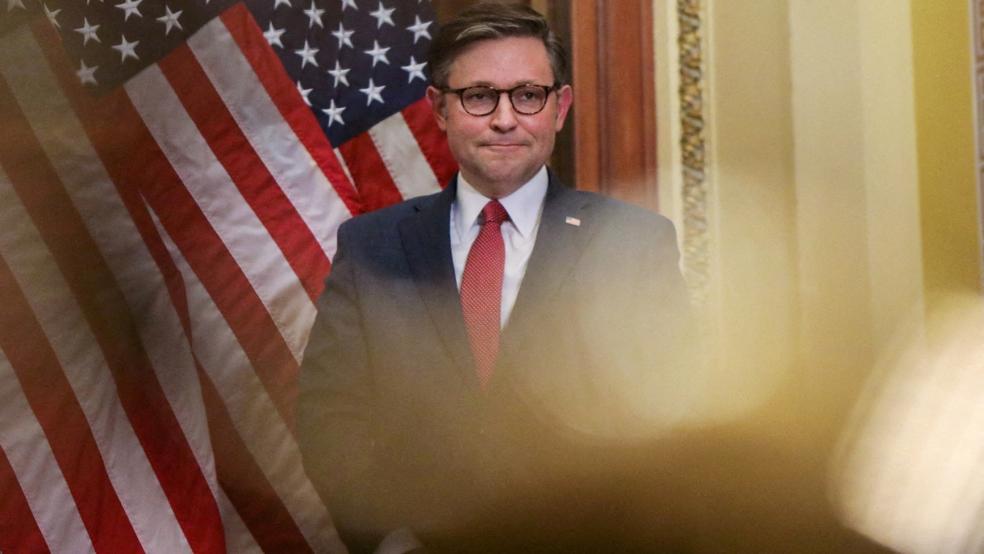House Speaker Mike Johnson on Friday defended the $1.66 trillion spending deal he reached with Senate Majority Leader Chuck Schumer and said that the agreement “remains” despite intense pressure from a group of right-wing Republicans calling for him to abandon the pact he made less than a week ago.
“After weeks of hard-fought negotiations, we achieved a strong topline agreement that allows our Appropriations Committee and all those who work on this to complete the appropriations process,” Johnson told reporters. “It’s an important part of keeping the government running.”
Johnson made his statement to the media a day after angry ultraconservatives demanded that he walk away from the spending deal and told reporters that the speaker was at least open to the idea. His comments also came shortly after he was reportedly “chewed out” on the House floor Friday by members of the conservative House Freedom Caucus.
Hardliners in the GOP conference say that Johnson should not have agreed to abide by a $69 billion handshake agreement initially made last year by former speaker Kevin McCarthy. They have been pushing for steeper spending cuts and immigration restrictions — and their pressure has reportedly weighed on the speaker. “During a House GOP leadership meeting on Tuesday, Johnson got visibly frustrated with House Freedom Caucus Chairman Bob Good, according to sources in the room, and pressed the Virginia Republican on what his strategy would be to get out of a government shutdown if that’s where they end up,” CNN reports.
More moderate Republicans, meanwhile, continue to back Johnson and the deal he struck — a deal he said Friday he would be upholding.
“In keeping with my commitment to bring members into the legislative process, I’ve spoken and received feedback this week from many members all across the Republican conference. That’s a very important part of this,” Johnson told reporters, adding, “Our topline agreement remains. We are getting our next steps together, and we are working toward a robust appropriations process, so stay tuned for all of that to develop.”
Those next steps are still unclear at the moment, even as the deadline to avert a partial government shutdown is now just a week away. Bipartisan efforts to fund the government continue, and the Senate is moving forward with a plan to pass a stopgap spending bill next week. That bill will reportedly last until early- or mid-March.
But while it’s clear that a stopgap spending bill will be necessary, Johnson has yet to lay out how he wants to structure that measure and set the next deadline.
He reportedly told his members Thursday that his own preference would be to pass a clean year-long continuing resolution, which would be different than the deal he cut and would spur across-the-board spending cuts that many lawmakers oppose. Republican defense hawks balk at the idea of freezing military spending, while Democrats object to the non-defense reductions. He reportedly also floated a February 9 date in a Friday morning meeting with some appropriators and vulnerable Republicans but the idea met with pushback from lawmakers who said it would not allow enough time for the spending bills to be completed.
The bottom line: Johnson is relatively new to all this, and his approach — lots of listening, cautious communication and decision-making — has left both conservatives and moderates frustrated and left some questioning his leadership. Congress has a week to pass a short-term spending bill, so the drama is likely to escalate in the days ahead. At this point, a stopgap lasting until March may be most likely, but, like Johnson said, stay tuned.





